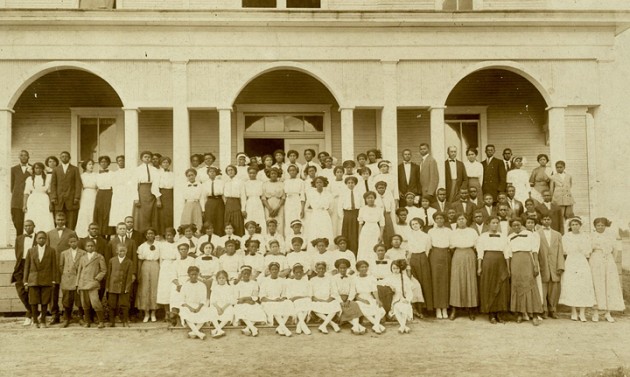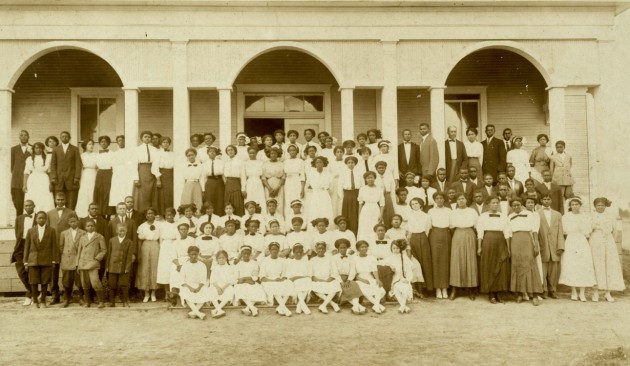
Courtesy Photo
By Mallory hisler
Reporter
Although names such as Martin Luther King Jr., Booker T. Washington and Rosa Parks are sometimes the most readily associated with major contributions to the advancement of African-Americans, there are people who have lived in the Waco area and made impacts as well.
In order to highlight such individuals, The Texas Collection will present “A Homegrown Vision: Robert L. Smith and the Farmers Improvement Society” next month.
The exhibit, the library’s first to honor Black History Month, will feature a Waco family that made strides to improve the lifestyle of African-Americans.
The exhibit will focus mainly on the Farmers Improvement Society — a boarding school that taught vocational agriculture, as well as regular school subjects — and its founder, Robert Lloyd Smith. It will also follow Smith’s relationship with his wife, Ruby Cobb.
“In every society there are elite families. For African-American families in Waco, they are it,” John Wilson, director of the Texas Collection, said, of the Cobb-Smith family. “They were interested in education and invested in the African-American community. They were interested in the betterment of people in general.”
Smith’s society sought to enhance the lives and overall well-being of African-Americans by teaching them various life and vocational skills.
“Robert L. Smith… was the guy that was taking Booker T. Washington’s ideas and applying them to Texas,” Paul Fisher, a processing archivist who is coordinating the exhibit, said.
“For him, education was the way out, and the type of education he believed was best for the people was farming education.”
Smith’s background set him up for a different path from most African-Americans of his time.
He was born free at the beginning of the American Civil War, and was well-educated — two things that were out of the ordinary for those living in the South.
“Seeing a man [that] society was pitted against and wouldn’t help, and then seeing how much he did — it was just so much,” Ann Payne, a library associate who is coordinating the exhibit with Fisher, said. “He did so much on his own, against the odds, and helped so many people with his society,” she said.
According to both Fisher and Payne, Smith’s love for education and desire to impart knowledge are what brought him to Texas.
Wilson said he is excited about the exhibit because of its ability to teach today’s students and researchers about the contributions of someone from 100 years ago through firsthand documents.
In fact, researchers have already come from North Texas to look at the collection, he said.
“This exhibit was such a natural, because most people wouldn’t realize what kind of an impact [Smith] had in Waco, and all over Texas,” Wilson said.
The exhibit will consist of four display cases on the main floor of Carroll Library, where the Texas Collection is housed.
Payne said the main case will give background on the financial institutions that stemmed from the Farmers Improvement Society and a “What it would be like if you were a member” section.
There will also be cases dedicated to Smith, Cobb and the actual school that was located in Ladonia (a small town in North Texas) and its archives.
The exhibit will open Feb. 1 and will run until March 20. The Texas Collection’s hours are 8 a.m.- 5 p.m. Monday through Friday.



